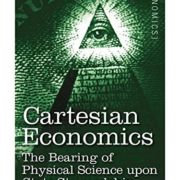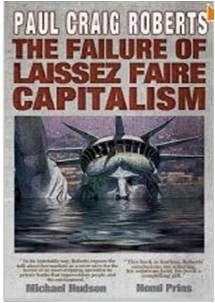A Country of Immigrants
by Herman Daly
Historically, the U.S. is undeniably a country of immigrants. But why is this uncontested fact so repeatedly emphasized? Might the unremitting celebration of immigration as a policy (as opposed to the celebration of particular immigrants as people) obscure a dark side of our immigration history?
In popular American culture the near genocide of Native Americans is considered an unfortunate collateral effect of the glorious European immigration of our ancestors. Whatever past policy led to us—for example manifest destiny—must be good. We are the proof!
The additional involuntary immigration (slavery) of Africans merits equal shame, but it too helped to make us a “country of immigrants.”
Subsequent waves of immigration from Europe, as well as Asia and Latin America, were part of a cheap-labor policy favored by the U.S. elite, often resented by the U.S. working class. Currently, automation and off-shore operations are reinforcing the historical cheap-labor policy of lax enforcement of our immigration laws. Illegal immigrants have lately been pawns in U.S. class conflict, used by the elite to bust unions and drive down wages, safety standards, and other working conditions.
As individuals we are all proud of our immigrant great-grandparents and diverse cultural heritages. Immigrants have made enormous contributions, and they still do. Nevertheless, our national immigration history gives us as many reasons for repentance as for pride. Yet we now hear strident calls for more immigration, and even for a de facto policy of open borders. Why? Well, because “we are a country of immigrants!”

U.S. Customs and Border Protection sign, Pigeon River boat launch, Minnesota. ((c) 2018 Tony Webster)
At the same time, resistance to mass immigration is surging. Class conflict remains basic, mixed with diverse countercurrents of identity politics, political correctness, and racism—both real racism and false allegations. This growing maelstrom contributed strongly to the angry, confused, and tragic results of the 2016 U.S. presidential election. And the storm is growing, not only in the U.S. but also in Europe and elsewhere.
Much of the conflict in the U.S. could have been avoided if Congress had taken seriously the recommendations of its own 1995 Commission on Immigration Reform, chaired by the late civil rights champion Barbara Jordan. But, “a nation of immigrants” could not face up to reforming its immigration system. Allowing easy immigration is a cheap way for politicians to buy ethnic votes, as well as the votes of employers of cheap labor.
With an empty continent, free immigration may have been reasonable in light of the push factors in Europe. But we now live in a full world, much of which is being destroyed by war, or so ecologically ravaged by uneconomic growth that it cannot support its existing population, much less another billion or two. Should the U.S. continue, in mixed service to both individualistic humanitarianism and class-based exploitation of cheap labor, to welcome not only the poor and displaced of the world, but increasingly the technical and financial elite of the world who now compete for places with the teeming masses?
Should we welcome all of the poor (and elite) of the world, or only some? How many? Which ones? Do the poor and unemployed citizens in our own country have a say in those decisions, or only the employing class that benefits from cheap labor (and cheap human capital)?
Is free immigration to the U.S. the best way to help the world’s poor and oppressed? Where then will destitute U.S. citizens emigrate to? Would a new Marshall Plan plus care packages, along with refugee resettlement, as after WWII, be a better way to share than would the mass migration implicit in open-borders globalization? Can we at least discuss this alternative?
Apparently not—not as long as we pursue unlimited economic growth for the U.S. economy, which not only permits but requires us to continue as a cheap-labor “country of immigrants”. And not as long as any policy contrary to open borders, no matter how justly structured, elicits howling accusations of racism.
Global population growth is of course entirely due to natural increase, and migration would hardly be the problem that it is today if the quadrupling of human numbers within one recent lifetime had not brought the world from two to nearly eight billion people. However, in the U.S., Western Europe, and Canada, recent population growth is mainly due to net immigration and higher average fertility of immigrants. So, it is hard to evade the increasingly difficult and divisive issue of immigration in discussing the already nearly taboo subject of population policy, especially in “a country of immigrants”.
Without effective borders, responsibility for what happens within them would soon disappear. Human rights and welfare safety nets are provided by national governments—not by failed states—and not by global corporations, nor by the United Nations, however necessary the latter may be. Indeed, why would any nation undertake to limit its natural increase if the benefits of such limitation could be cancelled by unlimited immigration? Or if the costs of its own high population growth could be exported by unlimited emigration? Or if the investment in education of its own citizens could be lost to brain-drain emigration? Open borders would invite the tragedy of the open-access commons writ large. Low-wage corporate feudalism would force a competitive race to the ecological bottom in an inclusive global commons.
It is a wishful thought that mis-measured economic growth brought on by borderless globalization, will magically overcome finitude and entropy. With erased boundaries there would be no recognition of limits or scarcity, and hence no need to share, nor any definition of fellow citizens who have first claim to our sharing. Nor would there be any reason to distinguish better from worse ways of sharing, not in our “country of immigrants” where continuous wealth increase at the top is fueled by continuous increase in cheap labor at the bottom.
 Herman Daly is an emeritus professor at the University of Maryland School of Public Affairs and a member of the CASSE executive board.
Herman Daly is an emeritus professor at the University of Maryland School of Public Affairs and a member of the CASSE executive board.







Another very big point to this: immigration is not the root of the problem, oligarchy is. The Wall St./ billionaire/ruling class has been exploiting the division between ‘natives’ (i.e. white men already here) vs. immigrants for centuries. No doubt there are problems with our immigration policies, which are designed to punish foreigners and the underclass citizens of the country, so they need some serious changes but to get to the source of the problem we must first address the outrageous problem with the powerful ruling class that has no interest ever of sharing power. We can make changes to the immigration laws but without leveling the playing field it’ll be all just band-aides.